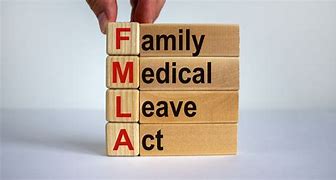Below is a review of the posts (on Facebook, LinkedIn, and Twitter) from the past week. You can check out the full posts by clicking on the links.

In the post on Sunday 12/12/2021 we saw that an employee may have been fired for taking FMLA leave, not unexcused absences, court says. You know that FMLA leave protects the person’s job, right? So let’s delve into the background here. Leisha Lindsey was a nurse and clinical manager for BMA. She took FMLA leave to care for her son after he was hospitalized. But oddly, she was not completely away from work. See the post for how Lindsey handled things. When Lindsey returned from the leave, BMA suddenly told her about attendance issues from prior to the leave. She explained most of them (see the post), but was fired as a result anyway. Lindsey then sued for FMLA retaliation. On appeal, the court let her case move forward, finding that there was doubt (as noted in the post).
TAKEAWAY: Document document document – it could make or break a future lawsuit.

The post on Monday 12/13/2021 noted that if you quit a job you likely cannot collect unemploy-ment benefits. Americans quit their jobs in record numbers in September 2021 – just over 4.4 million of them. That eclipsed the prior record from the month before (whose number is in the post). This dynamic is being called the Great Resignation. So do all of these workers who quit their jobs get to collect unemployment? For the most part, at least in PA (and most other states), no. There are exceptions such as the job having been unsafe and more as noted in the post. Claims for UC benefits are decided individually, with each claim being examined. Denials of eligibility can be appealed, but it is NOT a quick process. And in PA, even in those situations where UC benefits were paid out for a long time, the office is just now looking back at eligibility and sometimes sending out findings that the person was not eligible, setting up possible appeals or overpayments.
TAKEAWAY: If your UC eligibility has been denied at any point, contact a lawyer knowledgeable in the UC system to discuss whether or not you should be eligible and your next steps.

The post on Tuesday 12/14/2021 told us the 2022 employee benefit plan limits were announced by IRS. For example, the limit on elective deferrals and pre-tax contributions increases by $1,000, but catch-up contributions remains the same (at the 2021 limit mentioned in the post). The annual compensation limit increased by $15,000 and the total annual contribution limit for defined contribution plans increased by $3,000. The limits for a maximum benefit from a defined benefit plan and ESOPs (determining the length of the general 5-year distribution) also increased as noted in the post. The taxable wage base (the amount you can earn that is taxable) also increased (to the amount noted in the post). Limits on HSA contributions (both individual and family) increased slightly as did FSA contribution limits (all as noted in the post). There are also other changes that may apply to your situation, so check out the post.
TAKEAWAY: These numbers are important so that you know how much you can put in (or pull out of) which plan tax-free. Before you make any changes in 2022 from what you did in 2021, you might want to talk to an accountant.

The post on Wednesday 12/15/2021: ‘Twas the fight before Christmas’ – because every association needs a problem with holiday lights, right? Yes, this is actually a documentary appearing on Apple TV+, but it is oh so relevant – and sadly not out of the ordinary – in the condo/HOA world. The premise of this real-life story is that Jeremy Morris, who calls himself Mr. Christmas, is obsessed with bringing holiday cheer to everyone, whether or not they want it. He even moved his family to a larger house! Hi new neighbors took notice of his plans – see the post for what they entailed. The HOA then told him to stop and refused approval for his plans. Morris went ahead anyway. How he views what he is doing, and how his neighbors see it – and him – is all in the post. Yes it ends in a legal battle. Even if you don’t get Apple TV+, the trailer in the post is interesting to watch.
TAKEAWAY: Life in a planned community entails living by certain restrictions and rules. Often those include limits on holiday decorations: amount, color, and timing. Be prepared to live by the restrictions and have them enforced evenly.

In the post on Thursday 12/16/2021 we looked at lease resistance: county officials consider restrictions on rental houses in new neighborhoods. Is this legal? It is not uncommon for the developer or another investment firm, or even one or more individuals, to buy multiple homes in the same community for investment (rental) purposes. Should that be allowed? What effect, if any, do non-owner-occupied homes have on a community? Resale values, upkeep, and more. At least one county took notice for a community of more than 100 homes being built by D.R. Horton. The county asked the planning commission to include a restriction as noted in the post. What did the builder’s sales agent have to say? See the post. And who should make these decisions, the municipality, builder or homeowners’ association? There are arguments both in favor of and against rental homes in a community – see the post.
TAKEAWAY: It is often difficult or impossible for owners to change – either do away with or enact – restrictions on rental units in their community due to the required supermajority vote required, so the allowability may remain how (if at all) the developer put it in place. Discuss restrictions on rental units with a knowledgeable community association lawyer.

The post on Friday 12/17/2021 was more on how to determine when COVID-19 vaccine accommodations pose an undue hardship. From our post on 12/8/2021 you know that the standard for a request for a medical accommodation under the ADA is different than for a religious accommo-dation request under Title VII. Let’s look at this again since the number of accommo-dation requests, especially for religious reasons, is only increasing. When an employee requests accommodation (in other words, exemption from a COVID-19 vaccine mandate) for medical (disability) purposes, the employer must provide a reasonable accommodation unless, after making an individual assessment, granting an accommodation to that person would lead to significant expense or problems. The things an employer must take into account – in addition to what the employee requests and why – as part of the interactive accommodation process are listed in the post. But what if the request for accommodation is for religious reasons? An employer can decline if providing an accommodation would be an undue hardship. And what does that mean? See the post. While the employer still must engage in the interactive process, it is far easier for a religious accommodation request to be denied than one for medical reasons.
TAKEAWAY: Be consistent in dealing with all COVID-19 vaccine accommodation requests, fully engage in the interactive accommodation process, and document the entire process. Consulting with an employment lawyer helps to avoid legal minefields.

Finally, in the post yesterday 12/18/2021, we saw that UPS faces $250M sex discrimina-tion class action lawsuit. Three females who work at a hub in Oakland, CA filed suit in federal court in early November. They allege that female staff are routinely given dead-end jobs (which results in the things noted in the post). They also say it is worse for older female employees and more as noted in the post. More? They allege disparities in seniority based on gender and harassment when taking medical leave. The suit was filed as a class action, seeking at least $250 million in damages.
TAKEAWAY: While we don’t know how the suit will end, it is this writer’s guess that the suit will settle. In the meantime, you should take away that everyone should be paid the same for the same job and all should have equal opportunities to advance. If there is a (believed) disparity, consult an employment lawyer.

 York, Pennsylvania 17403
York, Pennsylvania 17403